Nine ways the House’s transportation proposal starts to make a “paradigm shift”
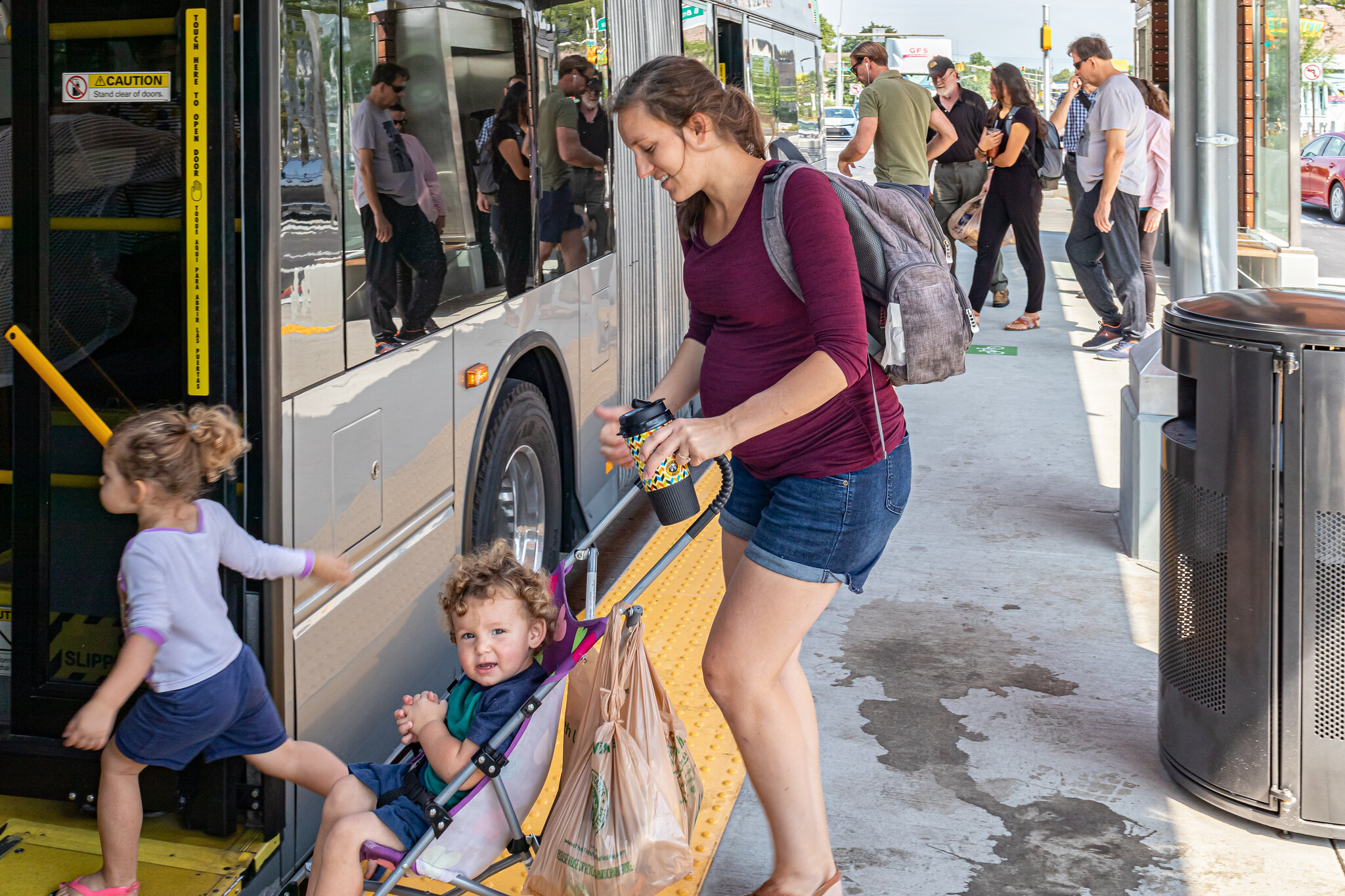
With the House’s INVEST in America Act being considered in committee on Wednesday, it’s a good time to look at what else beyond our core three principles in the bill are worth praising and potentially even improving.
New House transportation bill goes 3 for 3 on T4America’s core principles
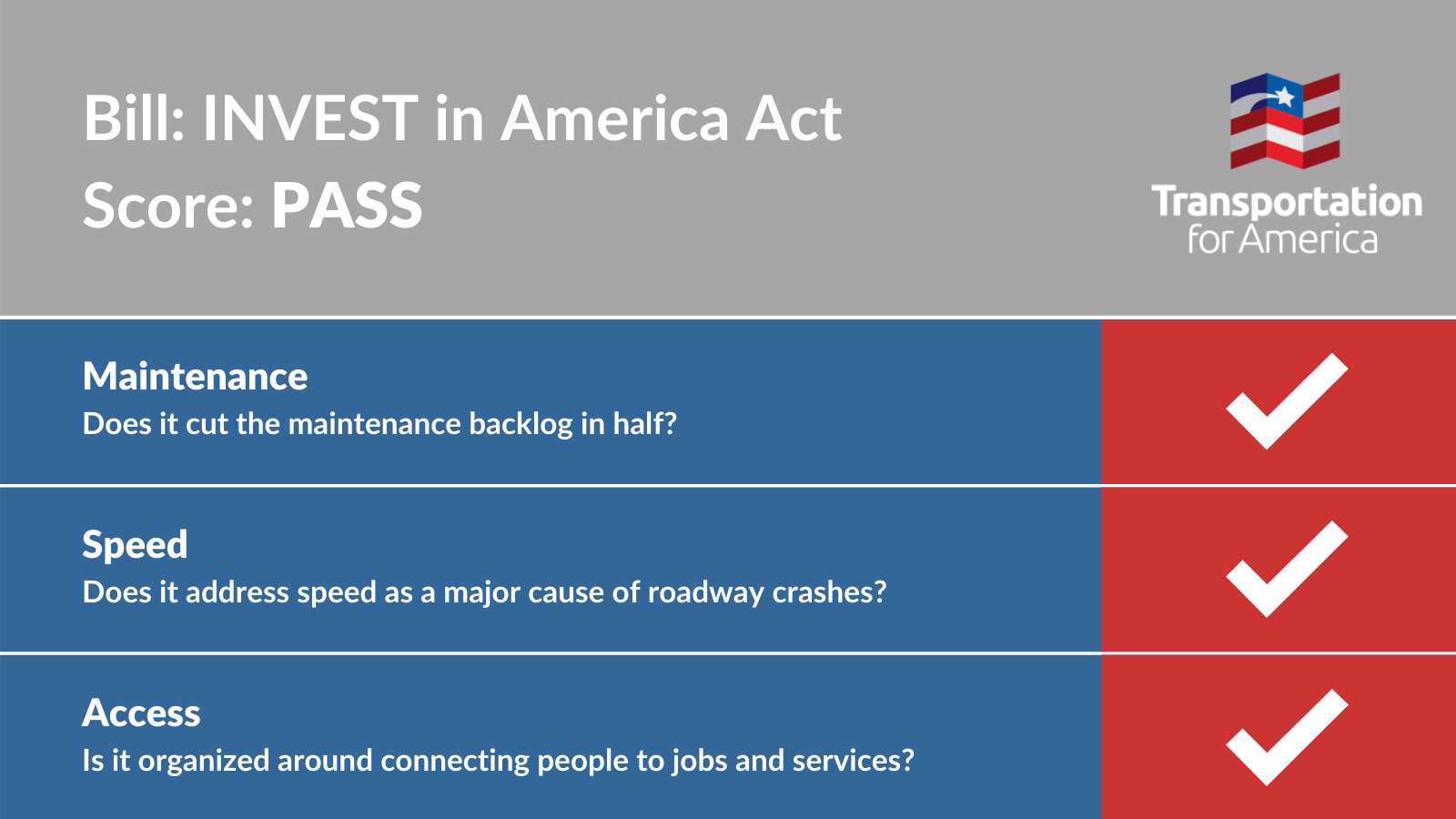
Late last week the House released their new five-year proposal for transportation policy and spending, known as the INVEST in America Act. By focusing on making tangible progress on outcomes like repair, safety, climate change, and access to jobs and services—rather than just asking for more money for more of the status quo—House leaders have again proposed a paradigm shift in how we spend transportation dollars and measure what they accomplish.
House transportation proposal focuses on updating nation’s outdated transportation policy to get better results

The House Transportation & Infrastructure Committee’s proposal for long-term transportation policy makes repair, safety, climate change, and access to jobs and services core goals for the bill’s spending, rather than as nice add-ons— taking a dramatically different approach than the Senate proposal.
Introducing Benito Pérez, T4America’s new policy director
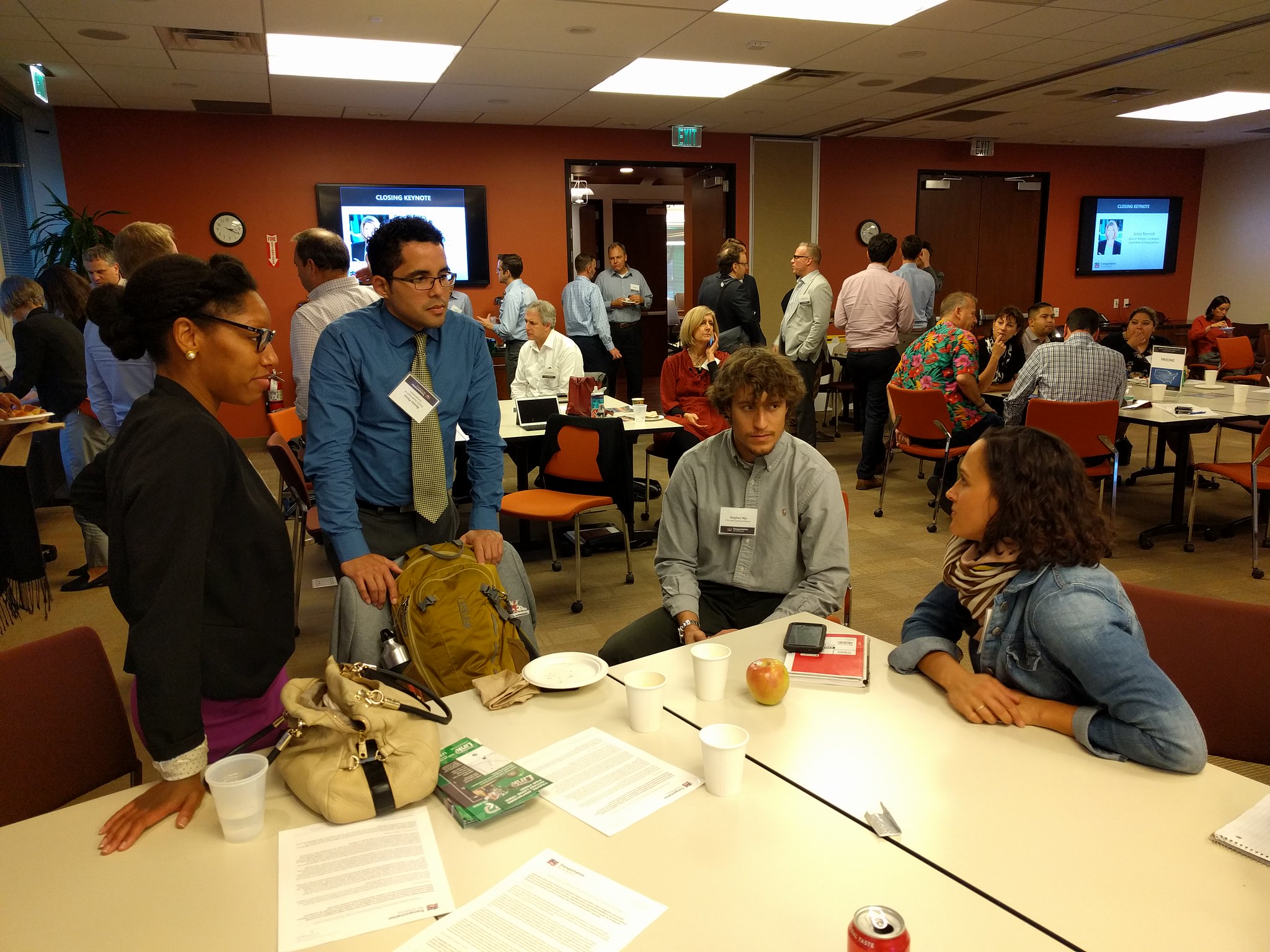
Transportation for America is pleased to announce that Benito Pérez, a veteran of the District Department of Transportation in Washington, DC, is joining the staff as the new policy director.
Interstate rail commissions get projects done. A new bill will create more of them

Last month, Rep. Steve Cohen (TN-9) introduced legislation that would create interstate rail compacts across the country. This bill is inspired by the success of the Southern Rail Commission, a compact of states along the Gulf Coast that teamed up to restore passenger rail service destroyed by Hurricane Katrina.
How both Democrats and Republicans alike traded away their principles for bipartisanship in the Senate’s transportation proposal
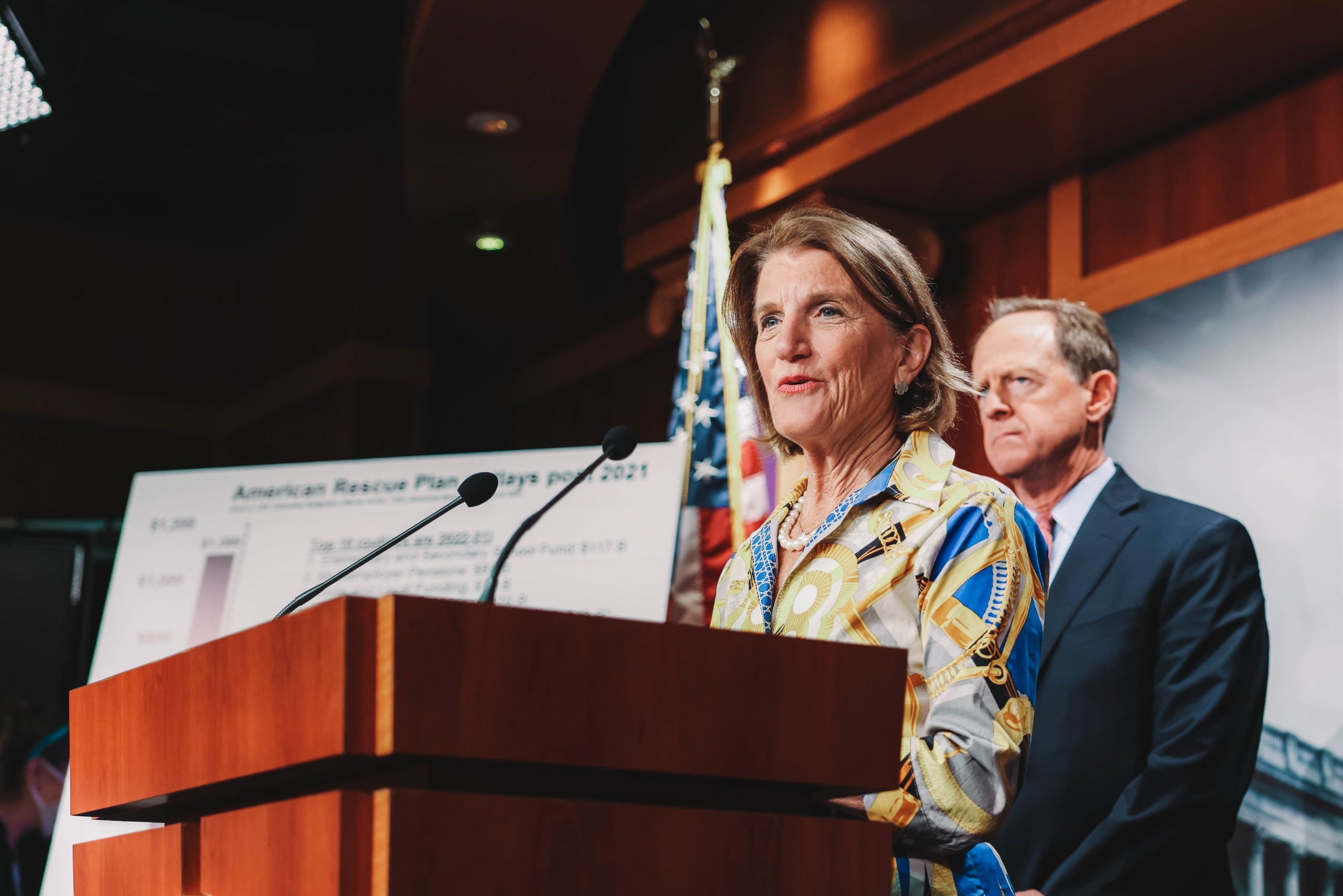
Last week, Democrats and Republicans in the Senate Environment and Public Works Committee unanimously passed a transportation reauthorization bill that would make reducing emissions, improving safety, and providing equitable access impossible. It’s clear that Democrats traded in their goals for “bipartisanship.” But so did Republicans.
Release: Transportation for America on Republicans’ second infrastructure proposal

“We’re disappointed to see Republicans—again—fail to provide any real infrastructure policy proposal, opting instead for small amounts of funding pumped through the broken transportation program.
Release: Transportation for America on the Surface Transportation Reauthorization Act of 2021
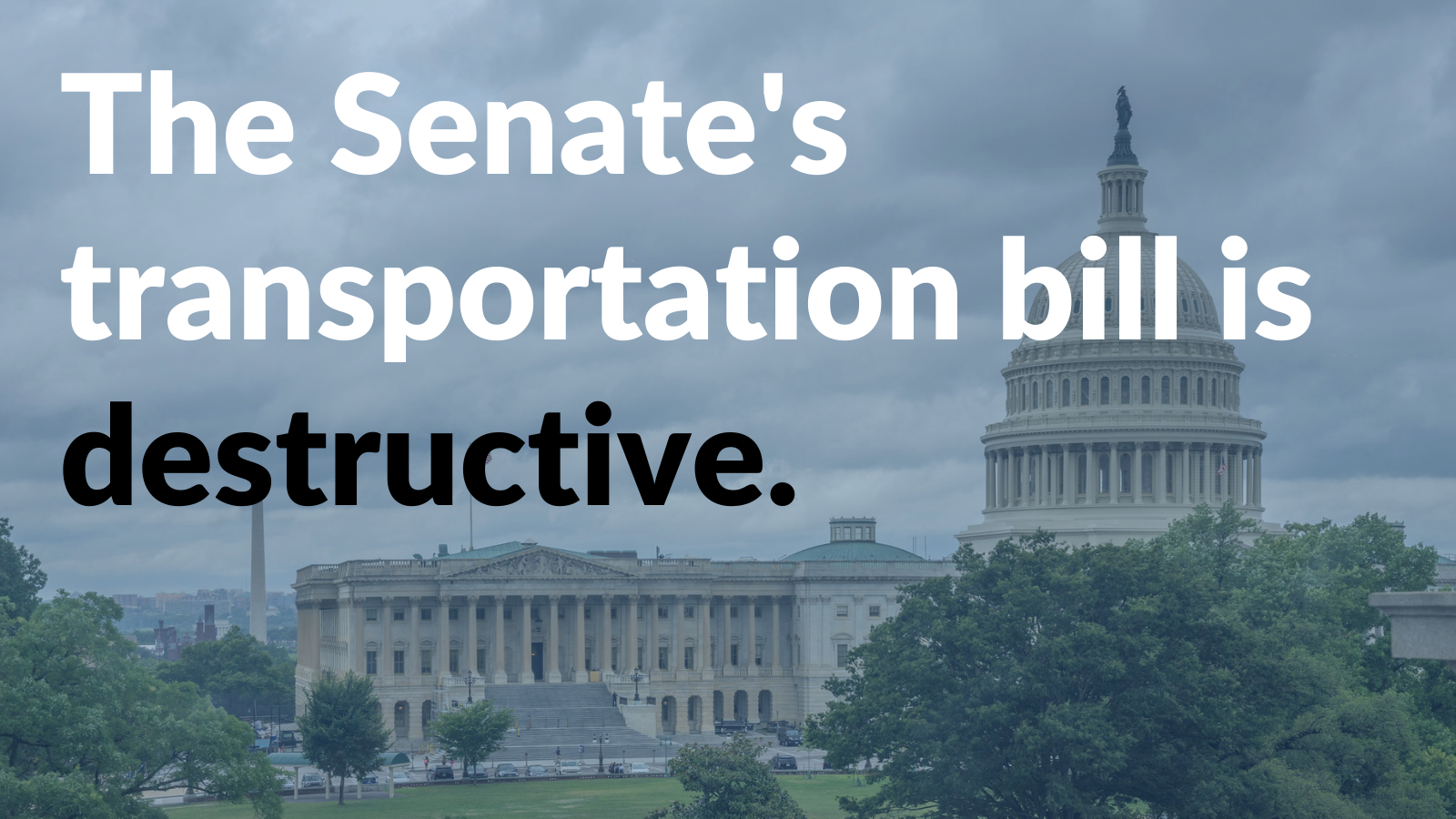
“The status quo is sending us backwards.”
3 ways the Senate can pass bipartisan and effective transportation policy
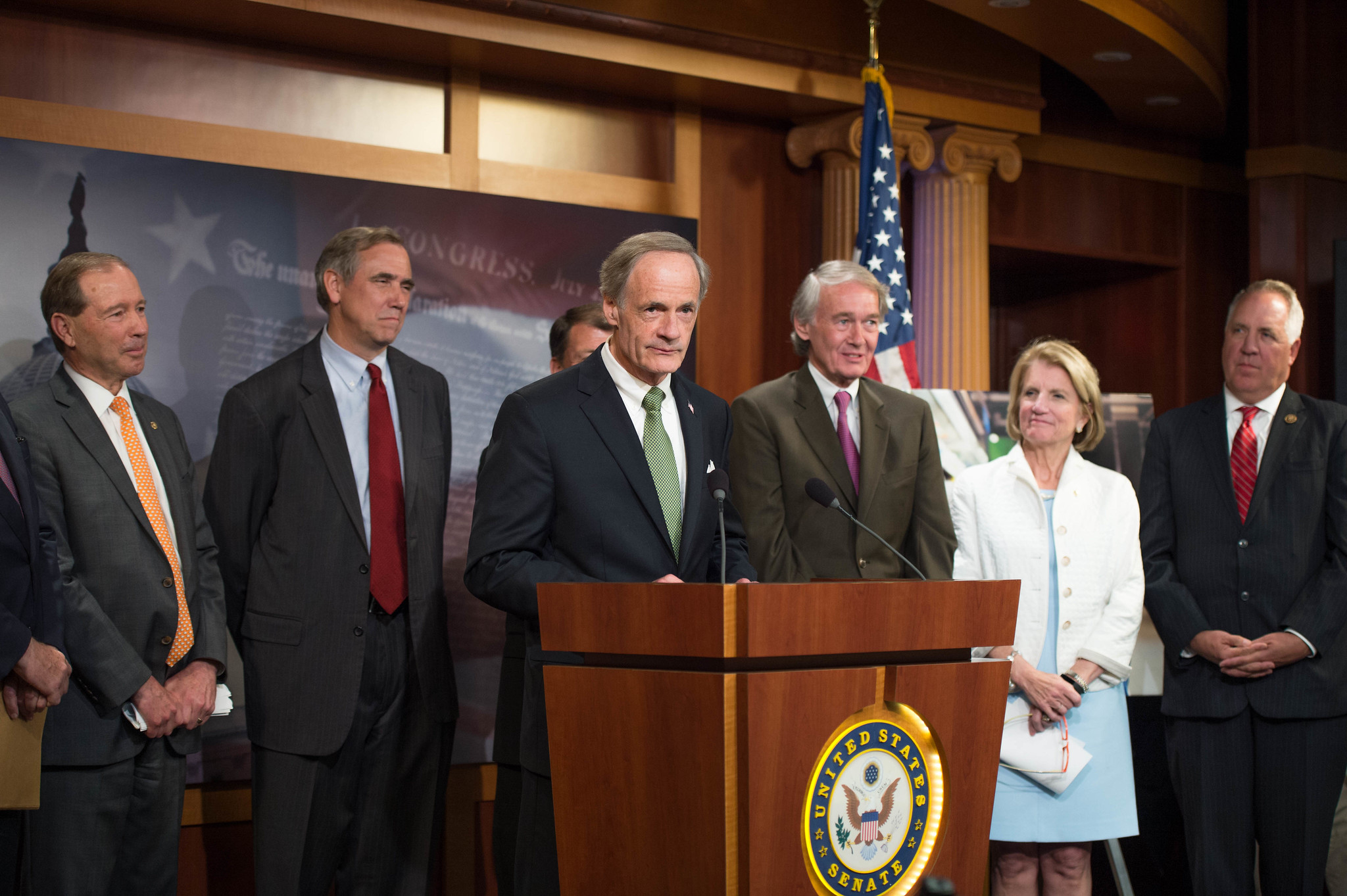
This past weekend, the Senate Environment and Public Works Committee released their proposal to reauthorize surface transportation policy for the next five years. The bill has bipartisan support, but it undermines both parties’ stated goals. A bipartisan and effective bill is possible—here’s how.
The good, bad, and ugly in the Senate’s new transportation proposal
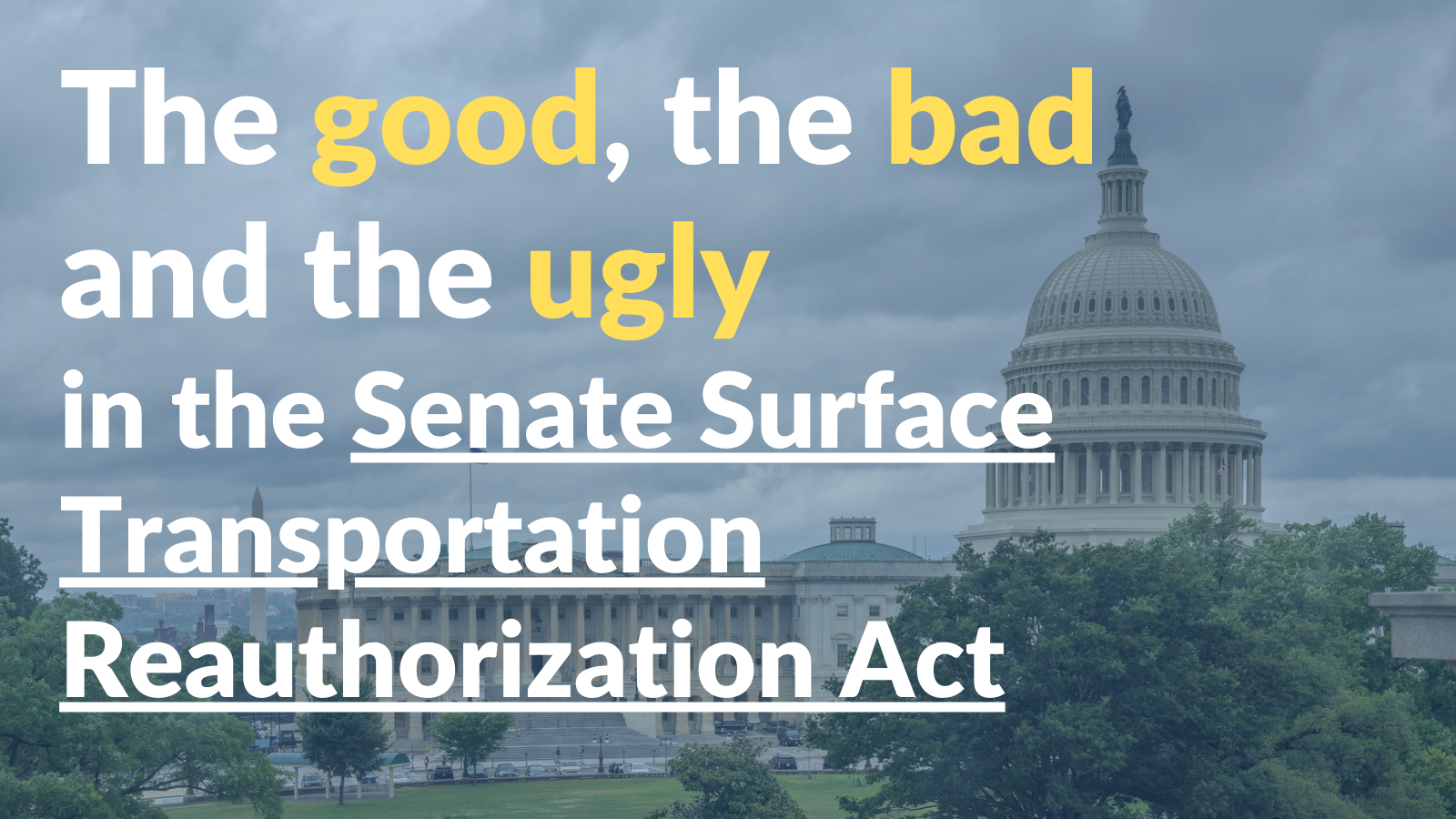
The Senate committee responsible for writing the highway provisions for our country’s long-term transportation policies released their proposal over the weekend. This bill makes some notable improvements and creates some vital, small new programs, but largely leaves the problematic status quo intact—akin to filling up a bucket with a leak in it.
Statement on the Surface Transportation Reauthorization Act of 2021

Federal transportation policy has very serious problems to solve, from increasing pedestrian deaths, skyrocketing emissions, and the lack of equitable access to jobs and essential services. This bill tried to tackle them in the way we have seen in the past. It creates exciting new programs with a small amount of funding in the hope that it can fix the problems that will continue to be created by the much larger status quo program.
Why we need federal operations funding for public transit
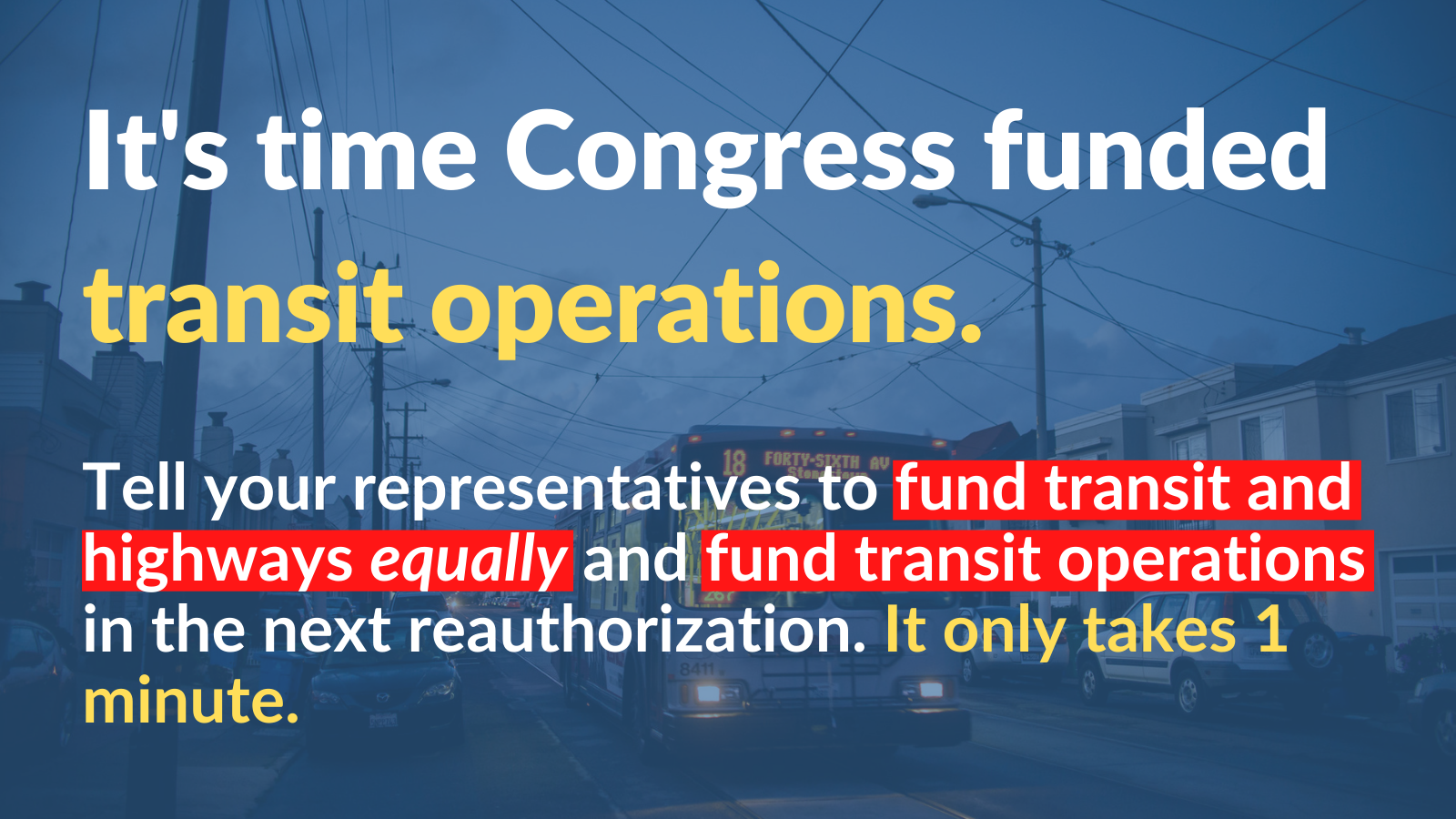
For decades, the federal government has only provided funding for public transportation maintenance and infrastructure projects—not the day-to-day costs of running trains and buses. This has to change in order to create the equitable and sustainable transportation system necessary to connect everyone to opportunities.
How has President Biden done on transportation in his first 100 days?
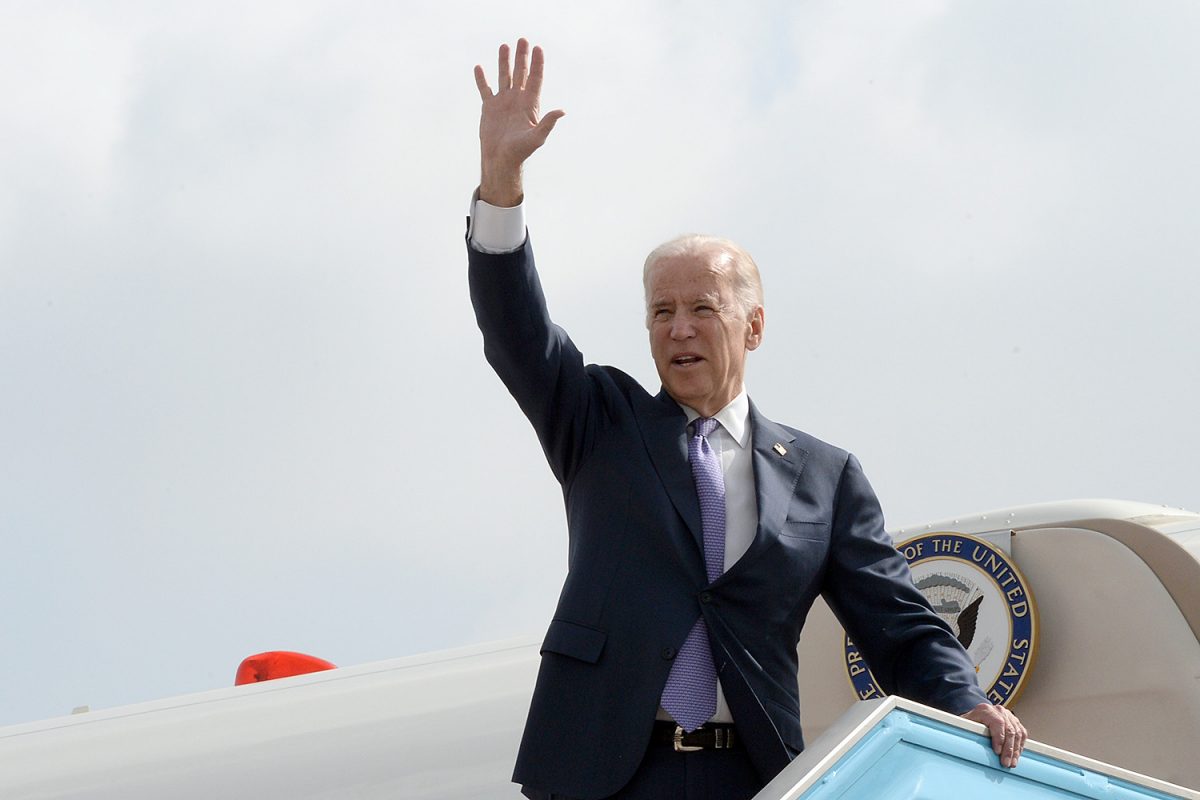
President Biden has gotten a lot of attention for his (good) infrastructure plan and overall approach to transportation. But after 100 days in office, the administration has ignored a lot of low-hanging fruit when it comes to executive and administrative actions they can take to support public transportation, emissions reduction, and other critical goals.
Senate Republicans’ small funding proposal is a roadmap to nowhere
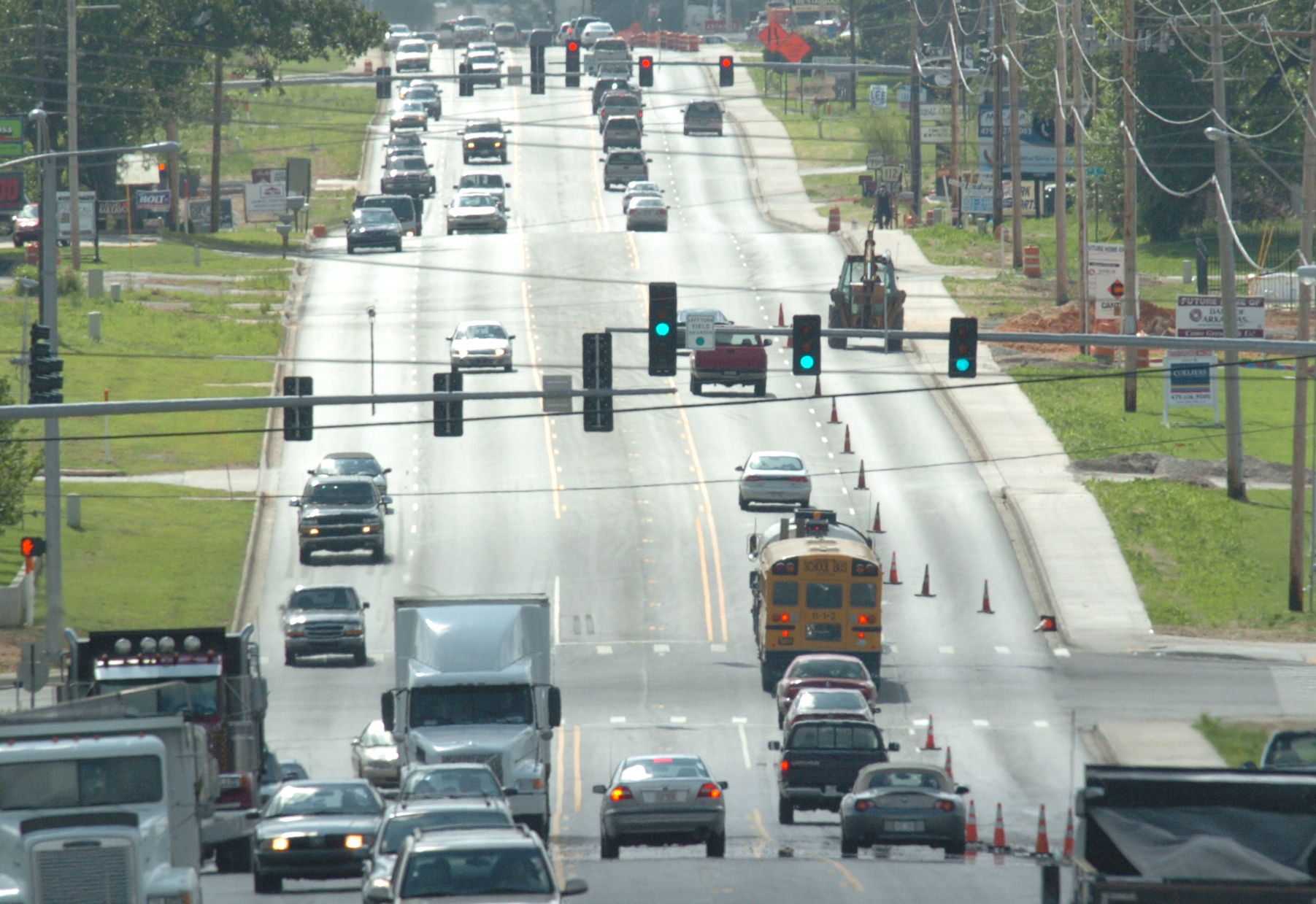
Last week, Senate Republicans released an infrastructure proposal in response to President Biden’s American Jobs Plan. Not only did Republicans cut public transit funding by $7 billion, but they missed the mark on the policy, pumping billions into the existing—and broken—federal transportation program. Here’s our take.
Senators hone in on 80/20 split, transit operations funding at Banking hearing
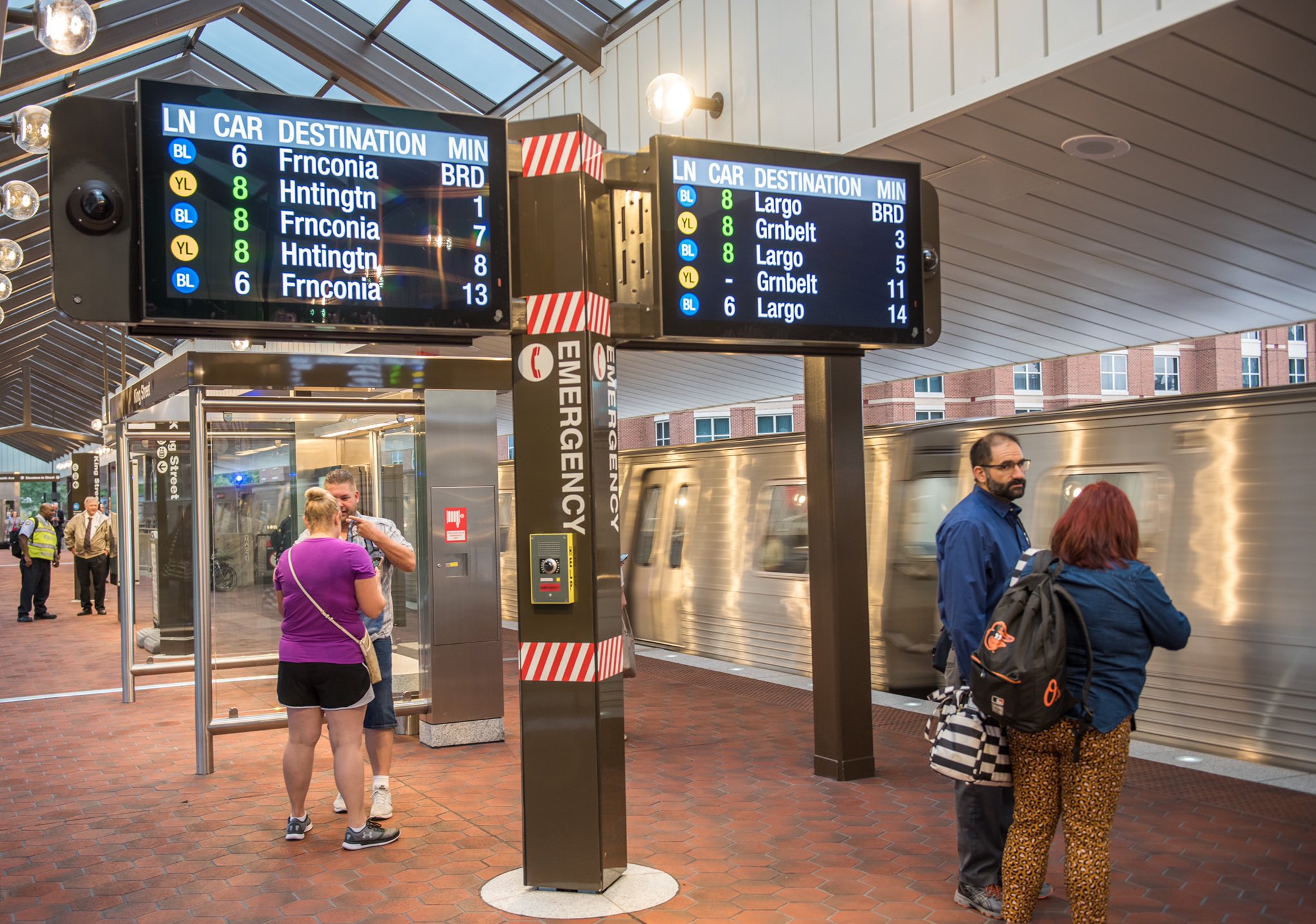
Last week, the Senate Banking, Housing, and Urban Affairs Committee held a hearing on investing in public transit in the next long-term transportation law. We were pleasantly surprised to see senators ask questions on funding transit and highways equally, transit operations, and rural transit.
WATCH NOW: Going #BeyondEVs in three webinars, including one with Sec. Anthony Foxx
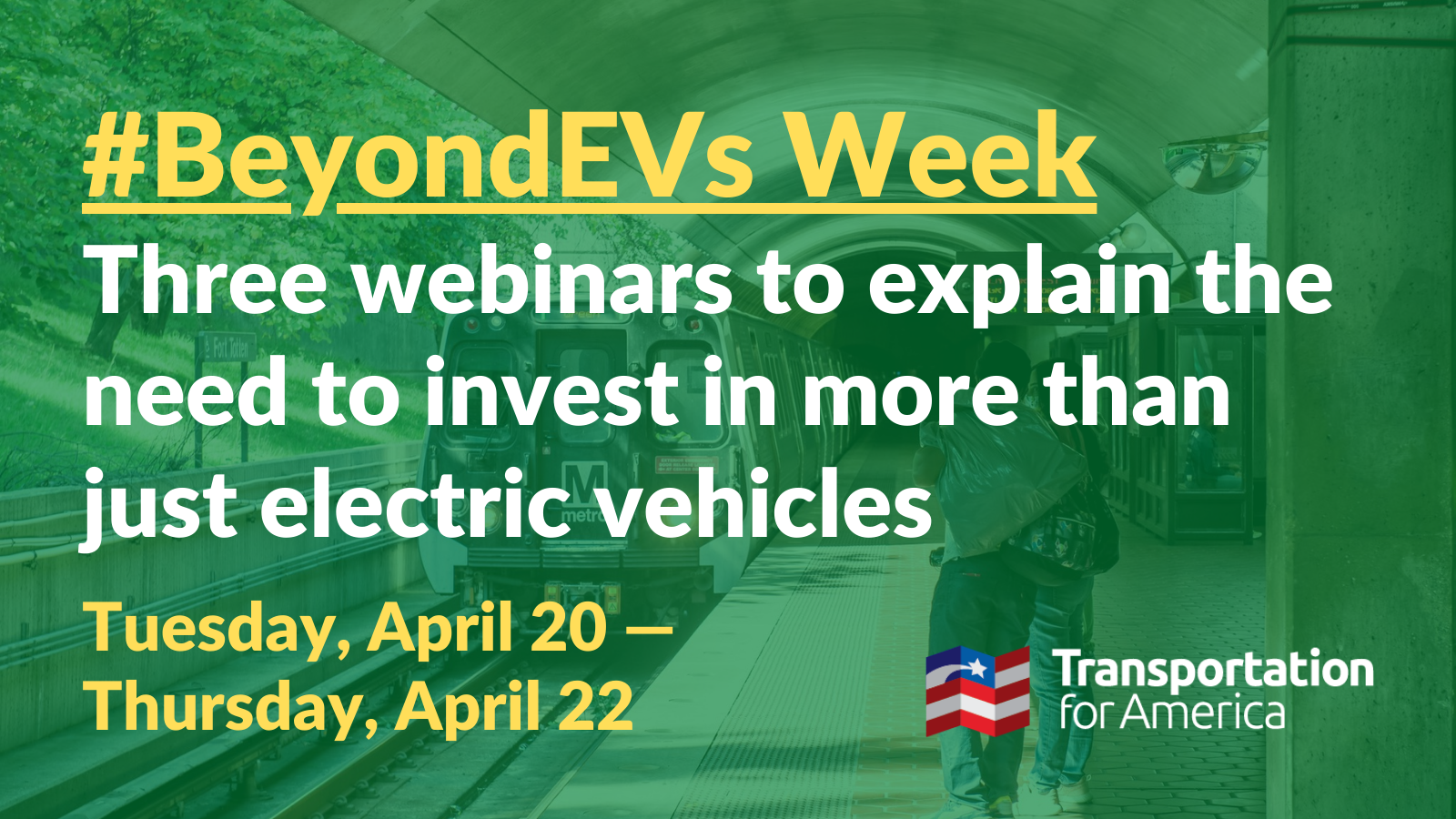
Electrifying vehicles is critical to reducing transportation emissions, but they can’t get the job done on their own—Americans need the freedom to drive less. In honor of Earth Day next Tuesday, we’re hosting three webinars diving into this issue, including one with former USDOT Secretary Anthony Foxx and Rep. Nikema Williams (GA-5).
Why Transportation for America joined an electric vehicle coalition
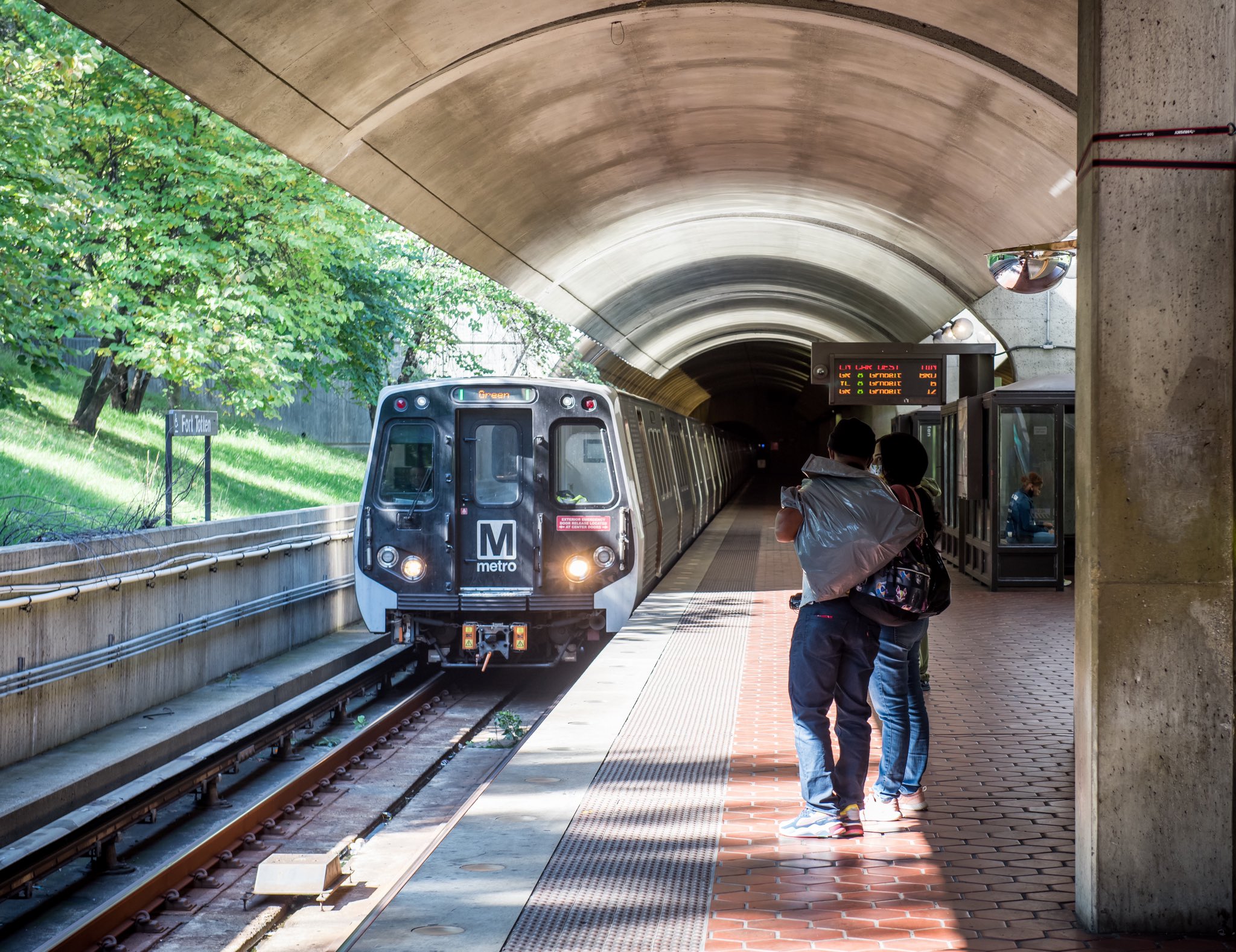
If you’ve been following Transportation for America for a while, you know that electric vehicles on their own aren’t enough to reduce emissions from the transportation sector—the largest source of U.S. emissions. That’s why we joined CHARGE, a new coalition of cross-industry stakeholders advocating for a holistic approach to electrifying the U.S. transportation network.
Minnesota takes important steps to drive down emissions
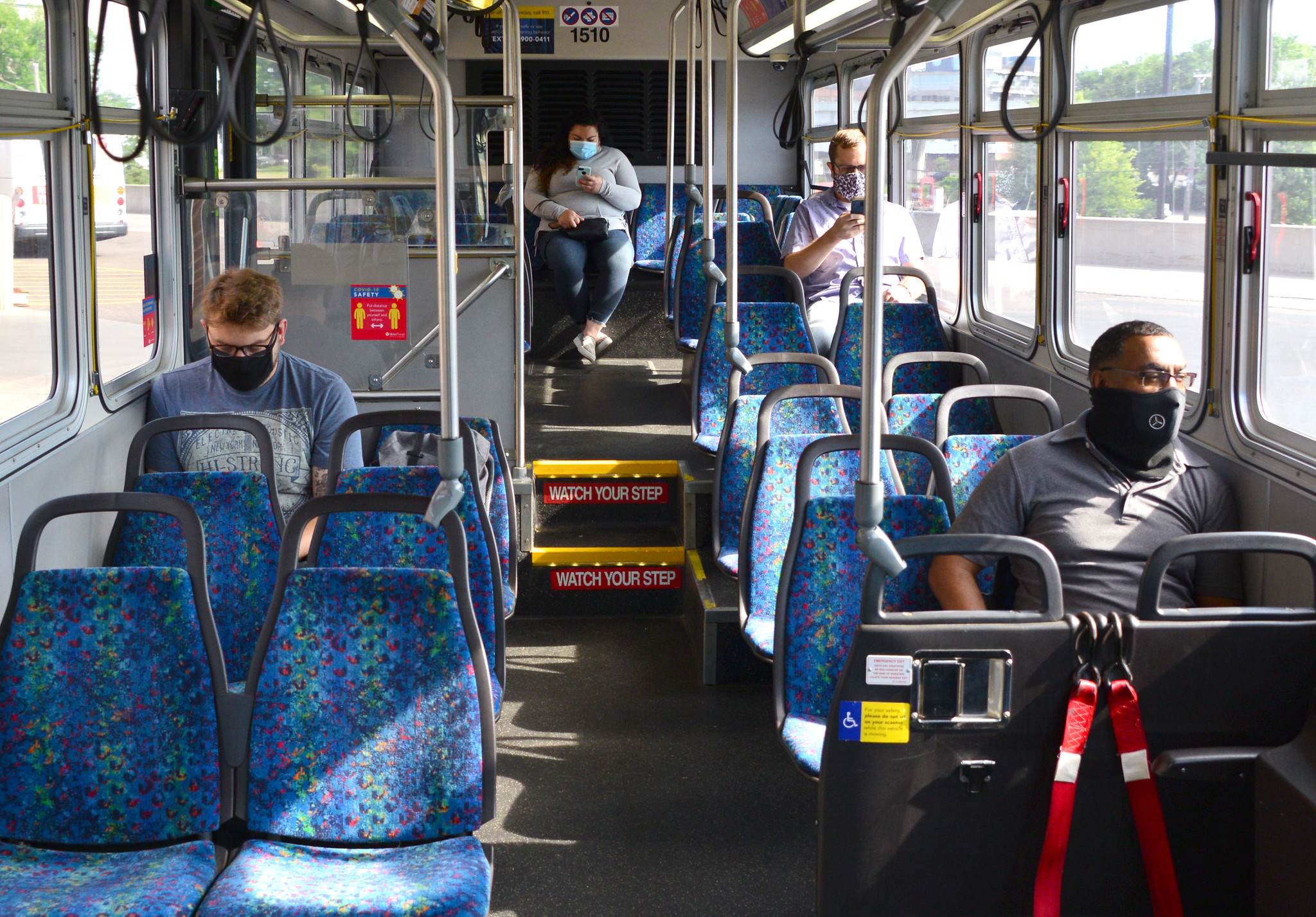
To address urgent climate needs, every state will need to make it possible for their residents to drive less every day. But too many shy away from taking concrete steps to do so, putting all of their efforts into improving fuel efficiency and electric vehicle adoption. The Minnesota Department of Transportation (MnDOT) just took a key step in the fight against climate change: setting an ambitious target for reducing driving (measured as vehicle miles traveled, or VMT).
Biden’s infrastructure plan is out. Here are our thoughts

Early this morning, the Biden administration released the American Jobs Plan, President Biden’s infrastructure proposal. There’s a lot to be excited about, including massively increased funding for transit and passenger rail—but as we wrote last week, how we target the funding matters as much as how much we spend. Here’s our take on the proposal.
The infrastructure stimulus will do more harm than good if policy doesn’t change

The Biden administration is preparing to release an infrastructure stimulus package, potentially as soon as next week. We’re having flashbacks to the Recovery Act of 2009, a package that missed a lot of opportunities. Here’s why the way funding is allocated matters as much — if not more — than how much funding is proposed.



















